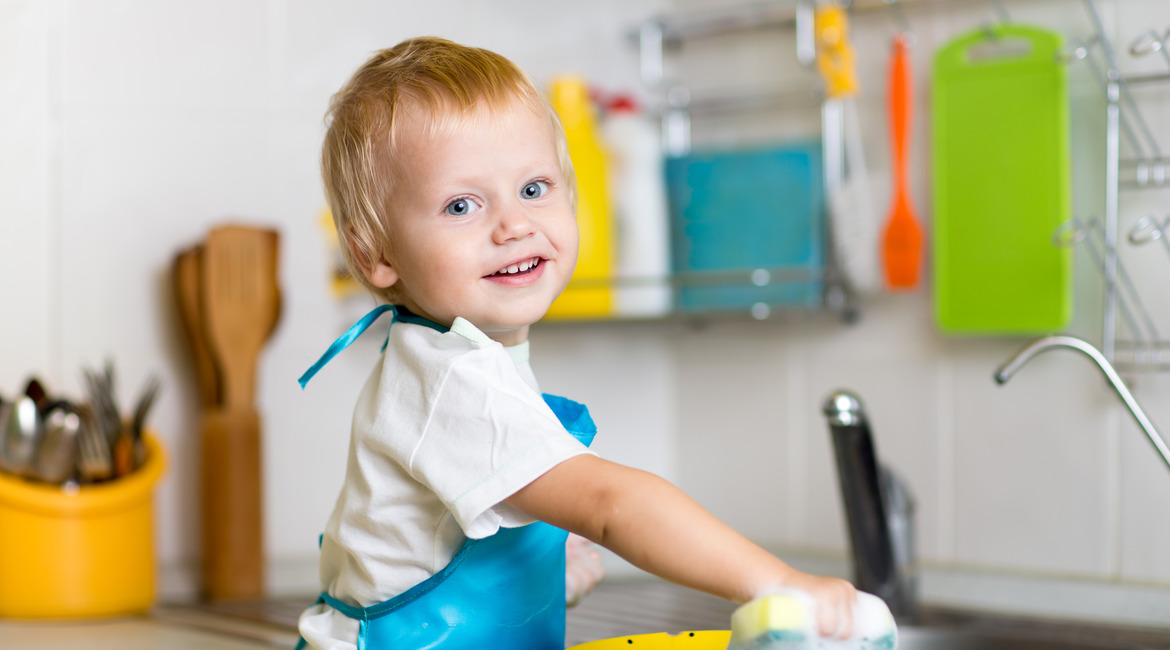The topic of household tasks as chores for children is a difficult one to explore. It’s difficult for the kids since they’d rather live in a world without chores. It’s difficult for the busy parent because they know that to be successful, they must select the perfect age-appropriate chore, teach the child how to do new chores appropriately, and then follow up to ensure the task is completed.
And, let’s face it, persuading kids to help with housework without moaning and complaining isn’t easy. It would be best to determine which chores your young children enjoy doing to get them into the habit of assisting with them. (As kids get older, they would need work on the more difficult and time-consuming ones.) You may have seen age-based task lists, but who can do what and when varies with each child, depending on ability, developmental maturity, hobbies, and any special needs. The following lists are organized in a way that I think is more user-friendly.
If you think your child isn’t ready yet, give her a chance nevertheless and be prepared to be surprised.

Special Occasion Chores
These are the kinds of hosting duties that don’t have to be done in a certain manner (or at all), making them ideal for the tiniest workers who eagerly anticipate visitors. Give them plenty of time and freedom.
- Create a centerpiece out of pinecones, fruit, gourds, or branches;
- Arrange flowers in a vase;
- Put together a cheese and cracker platter;
- Prepare the table;
- Design place cards.
Fun Chores
These chores are all tapped upon the simple pleasures of water and dirt; the technological excitement of gadgets; the deep satisfactions of sorting and matching. “Work” engages children’s interest, curiosity, senses, and capacities.
- Garden weeding ;
- Anything with water: wash salad leaves, scrub potatoes, water plants, pour water into glasses from a tiny pitcher;
- Sort cutlery from the dishwasher;
- Pair up clean socks;
- Pit cherries, slice eggs, and mash potatoes with tools or utensils.
Rewarding Chores
As your children grow older, they will be able to take on more difficult tasks in cooking, cleaning, and maintenance—tasks that may not be enjoyable but bring a sense of accomplishment. At the very least, these chores provide kids with physical evidence of their efforts: a fed cat purrs, raked leaves form pleasant piles, and a freshly cooked raw egg emerges from the pan, ready to eat.
- Preparing a quick meal or snack;
- Sweeping the floor and dusting surfaces with a moist rag;
- Cleaning the carpet with a vacuum;
- Cleaning and folding T-shirts, dish towels, or washcloths;
- Brushing and feeding pets;
- Raking up the leaves.
Dull Chores
These are the tasks that must be completed, recur regularly, and are not intrinsically enjoyable. Some kids may adore them, so don’t assume the worst or give your child the impression that he should be sad. And make sure he’s pleased by saying things like “Thank you so much” or “I appreciate your assistance.”
- Clearing the table and loading the dishwasher;
- Drying the dishes and, for older children, washing them;
- Wiping down the counters, stoves, and sink with a sponge;
- Taking out the trash and sorting the recyclables;
- Putting toys away and tidying up a playspace.
And you have to keep telling them not to be upset if they perform badly on a task. Show them how to do it with patience and a decent work ethic. In the long run, this practical skills instruction will be more valuable to them than clean facilities.
Finally, don’t give in to their whining or complaints. It is critical to have a positive mindset and lead by example. My children understand what is expected of them, and I reinforce their understanding with positive reinforcement. The earlier you begin teaching children household tasks, the more natural it becomes for them to participate in family responsibilities for the rest of their lives.
For each age group, here are a few age-appropriate chore suggestions. Keep in mind that you are the best judge of your child’s ability.
List Of Chores By Age
Toddler Chores (Ages 2-3)
- Sorting clothes under supervision.
- Taking plates and mugs to the sink after meals.
- Cleaning up the spillage.
- Rearranging the sheets on the bed.
- Returning clean laundry to the rooms of family members.
- Assembling the toys.
Preschooler Chores (Ages 4-5)
- All jobs for toddlers.
- Putting clothes in the washer/dryer.
- Assist with putting clothes away.
- Making the bed.
- Removing the recyclables.
- Watering flowers.
- Dusting the living area.
- Feeding animals/pets
- Putting the plates in the dishwasher.
Elementary Kids Chores (Ages 6-8)
- All jobs for preschoolers and toddlers.
- Doing the dishes in the sink.
- Picking up trash around the house.
- Sweeping the floor.
- Vacuuming.
- Folding and storing their own clean clothes.
- Mowing the grass and raking the leaves.
- Getting the mail.
- Washing the car.
- Putting the groceries away.
Older Elementary (Ages 9-11)
- All jobs for toddlers, preschoolers, and elementary students.
- Assisting in the preparation of meals.
- Assisting with the preparation and packing of lunch.
- Mowing the lawn.
- Clearing the snow.
- Taking your dog for a walk.
- Keeping pet cages clean.
- Keeping the toilets clean.
- Cleaning the sinks, counters, and mirrors in the bathrooms.
- Making a sheet change.
Middle School (Ages 12-14)
- All of the preceding chores.
- Using the washing machine and dryer to wash and dry clothes.
- Mopping the floors.
- Yard work/gardening.
- Ensuring Showers/tubs are clean.
- Assisting in the supervision of younger children.
High School Kids (Ages 14+)
- Completing all of the chores specified above with little or no supervision.
- Practically any domestic duty, as these are crucial life skills.
- Any yard work duty, which is also a valuable life skill.
It’s a good idea to organize your child’s list of easy duties on a weekly or monthly basis. This would relieve you of the stress of trying to figure out what the kids were supposed to do that day and having to give them specific instructions.


